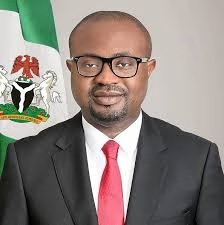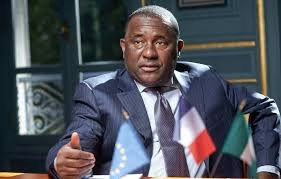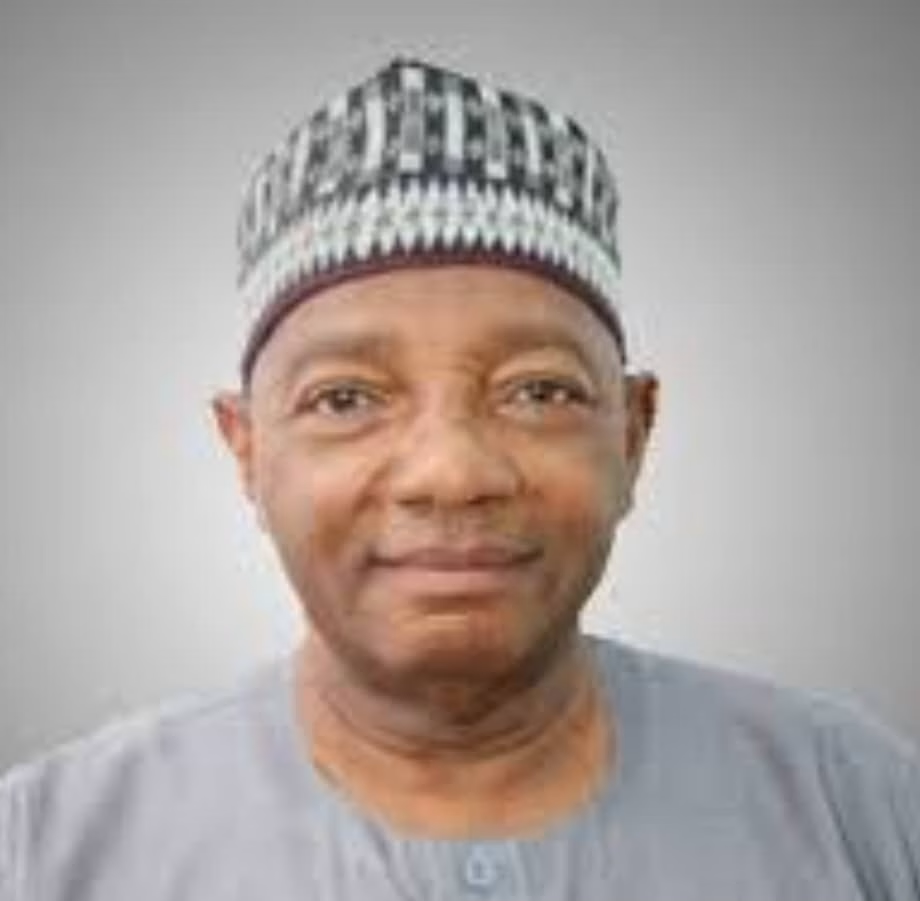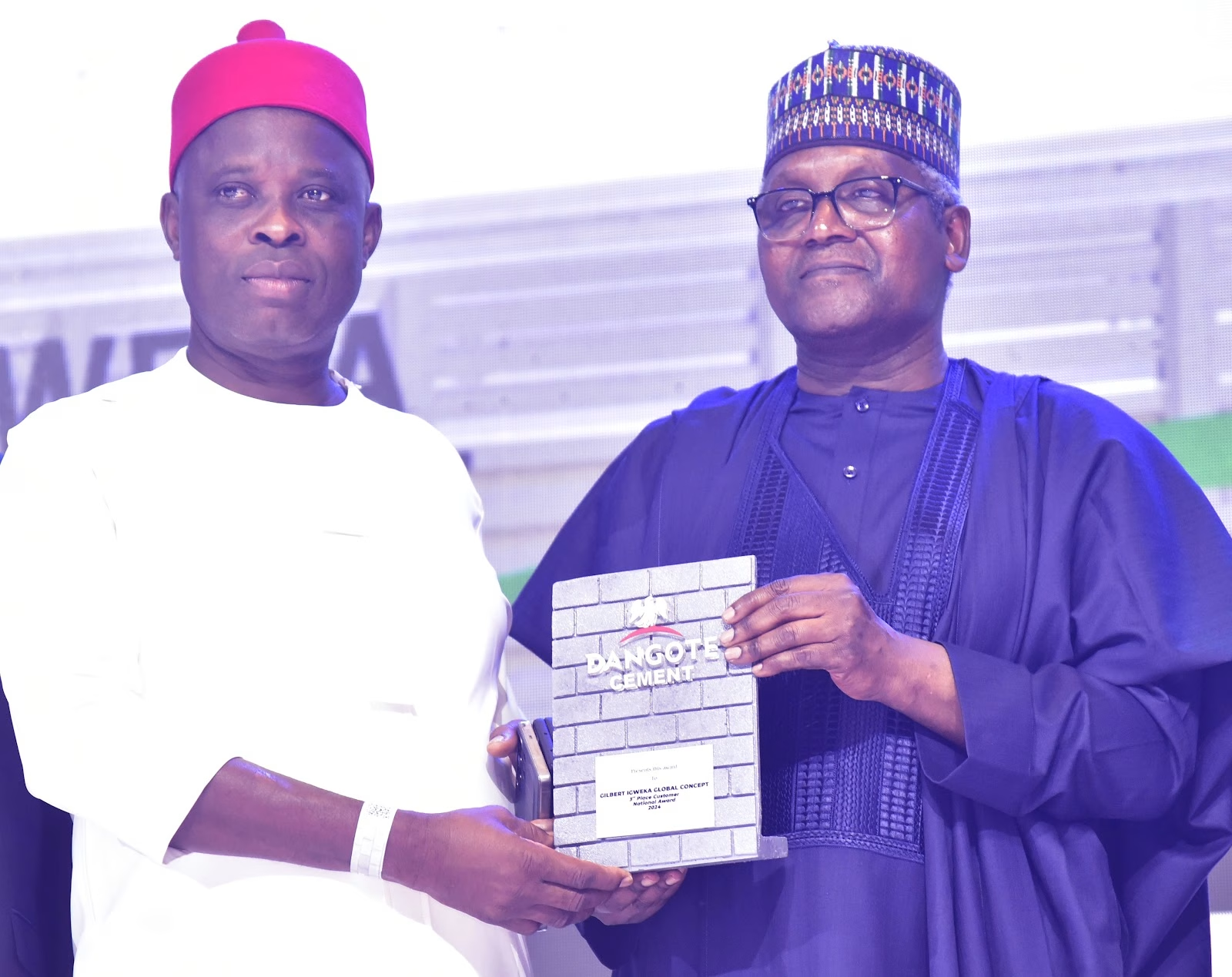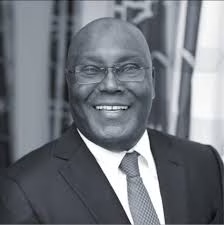Quote:
“If your actions inspire others to dream more, learn more, do more and become more, you are a leader.” – John Quincy Adams
If there is one notable game-changer standing tall above his peers, whose remarkable achievements within a short span of two years in office remain testament to the President Bola Tinubu-led government’s ‘Renewed Hope’ Agenda, he is none other than the Minister of Interior,Dr. Olubunmi Tunji-Ojo. This goes beyond sheer sentiments or gainful glorification. Yes, he might be on the quiet side of life, but given the fact that one’s stance is backed by empirical evidences, both on ground and in the public sphere, his sterling achievements need to be highlighted, as inspiration for fellow citizens, especially the younger generation to glean from. That is as he exemplifies a bright beacon to show the way forward, for other leaders in the country’s dark tunnel of the search for the long elusive good governance.
Name them: Standing out amongst the notable ones are the display of the humanity in him with the promotion of record 32,361 personnel, the implementation of transparent recruitment, and of course, ensuring timely decorations of deserving officers into their new ranks. What more, the transparent and streamlined recruitment process has been introduced. All these were done, because he is well aware that a motivated workforce remains the catalyst to driving the vision of the ministry forward.
Still on the human angle to leadership he remains an advocate for equitable compensation for workers in the ministry. A good example of this is that of aligning the workers’ salaries with of the Nigeria Police Force ( NPF ). So also is that of the functional pension board which has enhanced both their morale and productivity.
Going into the specifics, the ease with which Nigerians obtain their passports is linked to the establishment of a state-of-the-art Data Centre in addition to the Command and Control Centre. That is at the NIS headquarters. The new facilities are rightly designed with the salutatory aim to enhance the new visa and passport application processes.Interestingly, he has fulfilled his pledge to revolutionize passport processing, within a two-week timeline, in addition to the introduction of home and office delivery of passports. This commenced in February, 2024. He has also kept to his vision by implementing personal uploads of passport photographs. This also eases the streamlining the application process, thereby increasing both convenience and accessibility for the applicants. Not left out are the improved border management systems.
With regards to the correctional centres the interior minister has initiated their rehabilitation making them conducive for human habitation. In so doing it has bolstered Nigeria’s security infrastructure across the country.The decongestion of the correctional facilities through the clearance of fines and compensations worth N585 million for 4,068 inmates is exemplary. That is another display of the human aspect to the criminal justice reform. As Eleanor Roosevelt aptly stated: “A good leader inspires people to have confidence in the leader, a great leader inspires people to have confidence in themselves.” –
Taking the leadership narrative to the statutory functions of government to protect the lives of the citizens is the introduction of the Safe School Initiative. This, along with the improved emergency and fire response strengthened with the new fire engines and rapid intervention vehicles are equally commendable. And with the successful completion of a Dell 1.4 Petabyte (PB) Tier 4 Data Centre and Command at the Nigeria Immigration Service (NIS) headquarters, there is little doubt that Tunji-Ojo certainly knows his onions.
Rising to the increasing challenge of vandalism, especially in mining areas and to enhance revenue in the sector, Tunji-Ojo launched the Mining Marshal program at the Nigeria Security and Civil Defence Corps (NSCDC) headquarters. This laudable initiative is complemented by the deployment of 10,000 Agro Rangers across the 19 Northern states and the Federal Capital Territory ( FCT). The noble aim of course, is to protect our fertile farmlands and ensure safety for the farmers.
Lest we forget, another of his milestone achievements at the Nigeria Immigration Service (NIS), was the clearance of an overwhelming backlog of 204,332 passports within a record-breaking three-week period! Praiseworthy is it not? Of course, it is. By that fantastic feat he has saved Nigeria not only from a national crisis but an international embarrassment.
One other aspect of improvement on service delivery is on international relations. For instance, over the past two years the Minister of Interior has exhibited his patriotic rebranding in terms of reciprocating in visa processes to foreigners as
he has done for Nigerians.
With all these noteworthy achievements he has demonstrated that leadership by being prepared for it, with a pragmatic vision, along with people who believe in it and make the needed sacrifice for the common good. with the fear of God and love of the people is a possibility here in Nigeria. As a game changer he has switched the narrative of correctional centres from that of punishment to that of sober reflection to evolve the humanity in all of us.
It was in recognition of Tunji-Ojo’s inspiring achievements that he was awarded the “Public Service Person Of The Year 2023” by Leadership newspapers. That should serve as a lesson to others, in whatever leadership positions they find themselves to be guided by the doctrine of leaving behind worthy legacies. ” What will I be remembered for after my tenure in the service of my fatherland is done”?
Back then according to the media organization “he was found worthy for finding his way into the hearts of millions of citizens for whom obtaining or renewing the Nigerian passport had become a nightmare; for his bold, extensive and exceptional reforms tackling the perennial passport.”
So as Warren Bennis rightly stated: ” Leadership is the capacity to translate vision into reality” as Tunji-Ojo has done. He should therefore, keep going forward in the service of the nation.
Category: Politics
Court summons Surulere LG Chairman over Deeper Life Church demolition
OBASANJO, ATIKU AND TINUBU AT A TIME LIKE THIS
By Tunde Olusunle
Former President Olusegun Obasanjo was in his farmhouse address in Otta, Ogun State during the last weekend of January 2002. It was supposed to be a short get-away from work in Abuja where he was routinely out of bed before 6am and rarely retired before 2am the next morning. But work followed him to Otta, salient files from his Abuja office shipped over. Some of his senior aides and public officers also stopped by. From Otta, he was scheduled to undertake a two-day official visit to Katsina State. It was part of his countrywide tours, appraising the permeation of tangible dividends of democracy to Nigerians at all levels. I was on Obasanjo’s staff and had proceeded from Abuja on the advance team to tidy up preparations and to receive him. Sunday January 27, 2002, the evening before his scheduled departure from Otta en route Lagos to Katsina, however, unprecedented, massive explosions occurred in Lagos. The air was thick with uncertainty. Where could this earth-quaking “bombings” have taken place? Was it precedent to a coup to topple the nascent Obasanjo government?
The security ring around the President decided to be proactive. With the pervading confusion, the wisest probable thing to do was to move the President to safety, just in case it was a putsch. Should he be flown back to Abuja through Lagos? Should he drive to neighbouring Benin Republic as guest of his Beninoise counterpart? The genetically strong-willed Obasanjo would rather await security briefing. He wasn’t going anywhere, he said. Reports came in to the effect that the mishap occurred at the *Abalti Barracks, Ikeja Cantonment,* in Lagos. It occurred at the armoury of the military facility, where high calibre explosives were improperly stored. The tragedy claimed well over 1000 casualties, military and civilian. It displaced over 20,000, as it spread rapidly to adjoining districts and communities. Obasanjo had to be persuaded by his personal physician to get some sleep because of his loaded schedule ahead the following day. He stayed up, eyes wide open late into the night.
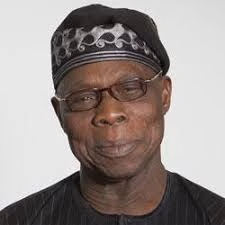
Obasanjo began his day on Monday January 28, 2002, at the Ikeja Cantonment. He toured the site of the occurrence and the adjoining areas which were flattened by the detonations and held a meeting with the military commanders. He considered rescheduling the Katsina trip in sympathy with the casualties. He was reminded by his protocol officials, however, that the Katsina visited had earlier been scheduled and cancelled because of the unavailability of the Governor of the state at the time, Umaru Musa Yar’Adua. Yar’Adua who succeeded Obasanjo in 2007, was abroad for a long spell, on cogent medical grounds. Before a sullen-faced Obasanjo addressed his hosts in Katsina when he eventually arrived, he called for two minutes of silence in memory of those that died in the Ikeja incident, and to empathise with the injured and displaced.
Ehigie Edobor Uzamere who represented Edo South Senatorial District in the seventh and eighth national assemblies, is 70 today. An elaborate event has been laid out to commemorate the landmark in Benin City, the Edo State capital. Former Vice President, Atiku Abubakar, GCON, is one of the very high profile dignitaries who was expected to grace the high profile programme. Reports indicate that members of Atiku’s entourage received reminders last night, detailing his itinerary. Earlier today, however, the Office of the Former Vice President put out the following statement:
*Cancellation of Benin Trip Due to Recent National Tragedies:*
*I write to inform you that His Excellency Atiku Abubakar, GCON, Waziri Adamawa, Vice President of Nigeria, (1999-2007), has reflected on the twin national tragedies in Niger and Kano States, where flooding and road traffic accidents have respectively claimed the lives of several Nigerians. In the light of this, he has decided to CANCEL his planned trip to Benin City, Edo State, this afternoon, June 1, 2025. This is to enable him mourn and pay his respects to the victims and their families.*
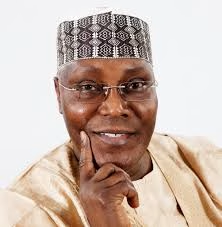
The statement was signed by Yahaya Ibrahim Zango, Principal Private Secretary to the former Vice President.
It is important to provide this background as counterpoint to the momentary retirement of President Bola Tinubu to Lagos for some official engagements, and the observance of the forthcoming *Eid-el-Kabir* festival. Tinubu left Abuja on Tuesday May 27, 2025, to attend a string of programmes. According to the press statement which announced his movements, he will remain in Nigeria’s old capital city until the conclusion of the *ileya* event on Monday June 9, 2025. To this extent, he will be away from Abuja for two weeks. Thus far, the President has attended ceremonies commemorating the 50th anniversary of the setting up of the Economic Community of West African States, (ECOWAS). He is equally commissioning and inspecting projects completed or initiated by his administration, to mark the second year anniversary of his presidency.
Before Tinubu’s departure from Abuja, he had been duly briefed about recent heightened attacks and incursions into parts of the North East, especially Borno State, which has been troubled by insurgents, for several years. He was acquainted about renewed, genocidal-scale killings in parts of the North Central, especially Benue and Plateau states. Bandits and miscreants have equally recently unsettled the peace and quiet of the Yoruba-speaking section of Kogi State, Okunland, across its six local government areas. Flooding in Niger State, also in the Middle Belt region, has claimed over 100 lives and disconnected parts of Nigeria’s North and South West, by the collapse of the all-important North-South bridge in Mokwa, in Niger State. Just yesterday, 22 members of the Kano State contingent to the recently concluded National Sports Festival in Ogun State, were consumed in an automobile mishap. The President’s prototype message of commiseration, and his directives to relevant departments of government to step in and provide succour in these various instances, is in the public space.
While spontaneous press releases and phone calls have their places in state administration, nothing compensates for that essential human touch, that conscientious empathy, in circumstances and periods of grave nationwide anguish such as we are in. The nation’s streets are lacquered by the blood of innocents, across our luminous geographical perimeters. The belly of the earth chokes and suffers reflux beneath the tonnages of unceasing and ill-timed cadavers it daily receives. *Death, to borrow from the evergreen lyrics of the revered, veteran Yoruba music artist, Ebenezer Obey, has become “two for half a penny.* Communities are displaced by the intolerable activities of rampagers and marauders, echoing memories of the 30-month bitter civil war which our country survived between 1967 and 1970. The living and medical conditions of internally displaced persons, (IDPs) in Benue State for example, are better not discussed. Yet, one generation of Nigerian toddlers bred and raised in those hovels, have never glimpsed another home, another community.
Times like this call for true, sincere leadership. Times like this demand way beyond the commandist outsourcing of responsibilities to scheduled appointees. They demand beyond monarchy-style overlordship as Nigerians perceive their leaders. They call for proactive and compassionate leadership. The Nigerian President is easily one of the most pampered across the world. He possesses every equipment and facility to enable his locomotion around the country, even the world, by the snap of his fingers. In a season such as this when gloom and despair pervade the nation, Tinubu should intentionally extricate himself from fawning aides and grovelling courtiers and demonstrate physical identification and genuine concern and humanity for his beleaguered constituents.
Very clearly, the campaign for the 2027 presidential election has been flagged off. President Tinubu is receiving endorsements and adoptions in places. His morale about the continuation of his job beyond his subsisting mandate which ends on May 29, 2027, is high. Tinubu, however, has pressing, present obligations to Nigerians, well ahead of 2027. The way he redeems these commitments by way of good governance of some sort, will largely determine the direction the hand of the clock ticks, come 2027. Except if the polls have been predetermined as has notoriously become the vogue with *Naija-style* democracy and electoral system.
*Tunde Olusunle, PhD, Fellow of the Association of Nigerian Authors, (FANA), is an Adjunct Professor of Creative Writing at the University of Abuja*
Two Years of President Tinubu: A Business Perspective
TEARDROPS FOR SHEHU IYAL, “CAPTAIN OF THE FEDERAL REPUBLIC”
Dangote Splashes N11bn in Gifts, Cash on Cement Distributors, Customers at Awards Nite
L-R: MD/CEO, Gilbert Igweka Global Concepts Nig. Ltd, Chief Gilbert Igweka, receiving the 2nd runner-up award of Top National Distributor, from Chairman, Dangote Cement Plc, Aliko Dangote at Dangote Cement Plc Customer Awards and Gala Nite, in Lagos on Tuesday, May 27, 2025.
L-R: Non-Executive Director, Dangote Cement Plc, Olakunle Alake; Independence Non-Executive Director, Dangote Cement Plc, Ernest Ebi; Independence Non-Executive Director, Dangote Cement Plc, Emmanuel Ikazoboh; CEO, Nwa Ado Multi Biz Limited, Chief Akukalia Ikwueme, receiving the 1st runner-up award of Top National Distributor from Chairman, Dangote Cement Plc, Aliko Dangote; Non-Executive Director, Dangote Cement Plc, Abdu Dantata; Group Executive Director, Commercial Operations, Dangote Industries Limited, Fatima Aliko Dangote; GMD/CEO, Dangote Cement Plc, Arvind Pathak; Independence Non-Executive Director, Dangote Cement Plc, Dorothy Udeme Ufot at Dangote Cement Plc Customer Awards and Gala Nite, in Lagos on Tuesday, May 27, 2025.
L-R: CEO, Nwa Ado Multi Biz Limited, Chief Akukalia Ikwueme, receiving the 1st runner-up award of Top National Distributor from Chairman, Dangote Cement Plc, Aliko Dangote, at Dangote Cement Plc Customer Awards and Gala Nite, in Lagos on Tuesday, May 27, 2025.
L-R: MD/CEO, Kazab Heritage Limited, Otunba Kazeem Odeyeyiwa, with his wife, Chief (Mrs) Adesola Olaide Odeyeyiwa receiving the winner award of Top National Distributor from Chairman, Dangote Cement Plc, Aliko Dangote, at Dangote Cement Customer Plc Awards and Gala Nite, in Lagos on Tuesday, May 27, 2025.
L-R: Non-Executive Director, Dangote Cement Plc, Olakunle Alake; Independence Non-Executive Director, Dangote Cement Plc, Ernest Ebi; Independence Non-Executive Director, Dangote Cement Plc, Emmanuel Ikazoboh; MD/CEO, Gilbert Igweka Global Concepts Nig. Ltd, Chief Gilbert Igweka; MD/CEO, Kazab Heritage Limited, Otunba Kazeem Odeyeyiwa; Chairman, Dangote Cement Plc, Aliko Dangote; Otunba Kazeem Odeyeyiwa’s wife, Chief (Mrs) Adesola Olaide Odeyeyiwa; CEO, Nwa Ado Multi Biz Limited, Chief Akukalia Ikwueme, Non-Executive Director, Dangote Cement Plc, Abdu Dantata; Group Executive Director, Commercial Operations, Dangote Industries Limited, Fatima Aliko Dangote; GMD/CEO, Dangote Cement Plc, Arvind Pathak; Independence Non-Executive Director, Dangote Cement Plc, Dorothy Udeme Ufot at Dangote Cement Plc Customer Awards and Gala Nite, in Lagos on Tuesday, May 27, 2025.
L-R: Non-Executive Director, Dangote Cement Plc, Olakunle Alake; Independence Non-Executive Director, Dangote Cement Plc, Ernest Ebi; Independence Non-Executive Director, Dangote Cement Plc, Emmanuel Ikazoboh; MD/CEO, Gilbert Igweka Global Concepts Nig. Ltd, Chief Gilbert Igweka, receiving the 2nd runner-up award of Top National Distributor, from Chairman, Dangote Cement Plc, Aliko Dangote; Non-Executive Director, Dangote Cement Plc, Abdu Dantata; Group Executive Director, Commercial Operations, Dangote Industries Limited, Fatima Aliko Dangote; GMD/CEO, Dangote Cement Plc, Arvind Pathak; Independence Non-Executive Director, Dangote Cement Plc, Dorothy Udeme Ufot at Dangote Cement Plc Customer Awards and Gala Nite, in Lagos on Tuesday, May 27, 2025.
L-R: Non-Executive Director, Dangote Cement Plc, Olakunle Alake; Independence Non-Executive Director, Dangote Cement Plc, Ernest Ebi; Independence Non-Executive Director, Dangote Cement Plc, Emmanuel Ikazoboh; MD/CEO, Kazab Heritage Limited, Otunba Kazeem Odeyeyiwa, with his wife, Chief (Mrs) Adesola Olaide Odeyeyiwa receiving the winner award of Top National Distributor from Chairman, Dangote Cement Plc, Aliko Dangote; Non-Executive Director, Dangote Cement Plc, Abdu Dantata; Group Executive Director, Commercial Operations, Dangote Industries Limited, Fatima Aliko Dangote; GMD/CEO, Dangote Cement Plc, Arvind Pathak; Independence Non-Executive Director, Dangote Cement Plc, Dorothy Udeme Ufot at Dangote Cement Plc Customer Awards and Gala Nite, in Lagos on Tuesday, May 27, 2025.
For their continued loyalty and patronage, Dangote Cement Plc has rewarded its distributors and customers with various choice gift items and cash worth N11 billion.
At the 2025 edition of its Customers Awards & Gala Nite held in Lagos, a premium celebration dedicated to recognising and rewarding its highest-performing distributors, with the theme ‘Let’s Acceler8’, the cement giant rewarded its distributors with gift items comprising several CNG trucks, containers filled with products, and cash valued at over N11 billion.
Welcoming customers of the company to the distributors’ award ceremony, Chairman of Dangote Cement / President of Dangote Industries Limited, Aliko Dangote, commended the distributors for their unwavering commitment and resilience “in driving our business forward, even amidst economic challenges.”
He lauded “their perseverance and determination in ensuring our products remain available in the market. Thanks to your efforts, we have secured over 57 per cent of the market share, and we encourage you to continue pushing for more growth.”
Dangote noted that “this year’s theme serves as a rallying call for unity and collective growth as we strive for unmatched market leadership in 2025. This theme reflects the strength of our partnership with valued customers, which continues to drive the success of Dangote Cement.”
He also noted that “Our leadership in the building and construction sector is rooted in this mutually beneficial relationship. Also, the partnership has been instrumental in elevating us to the position of Africa’s largest cement producer.”
He said, “in appreciation of the hard work, unflinching loyalty, and commitment of our esteemed customers in the year 2024, we are rewarding you with gift items and cash valued at over N11 billion. We are also celebrating our valued corporate customers, who have consistently chosen our cement products for a wide array of construction projects.”
He assured the stakeholders of the Company’s commitment to research and continuous improvement in its production processes and the highest quality products.
In his welcome address, Group Managing Director of Dangote Cement Plc, Arvind Pathak, stated, “Tonight, we celebrate the pivotal role our customers play in ensuring the widespread availability of our products across every region of Nigeria. We recognise and appreciate your remarkable efforts in driving the sales, distribution, and usage of our products throughout the year 2024.”
He said, “The outstanding performance of our company, especially in the past year, is a testament to your collective commitment and resilience. We are thankful for your continued dedication, which has made our products visible across all geopolitical regions. As vital partners in our value chain, from quarry to customer, your role is instrumental.
“To support your growth, we have distributed over 5,000 containers to various retailers. This initiative not only enhances our business value but also ensures that consumers receive products with an extended shelf life directly from the factory. In alignment with our chairman’s vision, we aim to distribute an additional 4,000 containers to our customers and retailers this year.”
Pathak added, “In line with DCP’s commitment to sustainability and the country’s clean fuel policy, we are transitioning our fleet of over 7,000 trucks from AGO to CNG by the end of 2026.
“We are making significant investments in new CNG trucks and the necessary infrastructure to support this transition. Currently, 3,100 trucks are operational, and our initiatives in alternative fuel utilisation have gained global recognition, with Dangote Cement receiving a commendable score from CDP in climate change and water security.”
He pointed out that “we are excited to reward some of our customers who have shown outstanding performance with CNG trucks to further develop their businesses. These rewards demonstrate our dedication to supporting our customers’ growth and commitment to sustainability. We are focused on strengthening the partnerships that have positioned us as the leading civil manufacturer in the nation.”
The Group Executive Director of Commercial Operations at Dangote Industries Limited, Fatima Aliko Dangote, acknowledged the significant contributions of the distributors. She emphasised the importance of their outstanding performance and achievements to the company’s sales growth and market expansion in 2024.
She noted that their efforts play a crucial role in sustaining public awareness and developing a market for Dangote’s cement products.
Aliko Dangote identified and highlighted the distributors as the backbone of the company’s growth and success, and encouraged them to aim for even higher performance levels in 2025.
The awards categories were in phases; Regional Award, Growth Award, Best Performing Customers.
WE HAVE MADE UNDENIABLE PROGRESS:
Achieving a brighter future for Nigerian children
2027: Northern Muslim group urges Tinubu to pick Christian VP
A northern Muslim advocacy group has called on President Bola Tinubu to consider choosing a northern Christian as his running mate for the 2027 presidential election.
The group, Concerned Northern Muslim Ummah, made the call in a press statement issued on Sunday by its convener, Bala Duguri.
It said the appeal followed wide consultations across northern states with various Islamic organisations, aimed at forging a unified political direction ahead of 2027.
Duguri noted that the group’s decision stems from its support for President Tinubu’s Renewed Hope Agenda, which he described as yielding “positive results toward a greater Nigeria.”
“Our group has undertaken wider consultations across the northern states with different Islamic organisations in a bid to speak with one voice over the political direction in the APC-led administration. The outcome is very encouraging,” Duguri said.
He emphasised that, based on their findings, there was a growing consensus that political equity and fairness demanded a religious balance in the 2027 ticket.
“We have carefully considered the present situation of our country, coupled with deep concern for the well-being of our people, in the spirit of fairness, equity, and justice,” he said.
The group acknowledged the success of the Muslim-Muslim ticket during the 2023 elections, attributing it partly to the support of the Christian community, and called for that gesture to be reciprocated.
“The sacrifices made by our fellow Christian brothers and sisters in the 2023 presidential elections, in the spirit of unity and national progress, need to be acknowledged. It’s time for Muslim political actors to make similar sacrifices,” Duguri added.
The statement appealed to potential Muslim vice-presidential aspirants within the APC to step aside and support the nomination of a Christian running mate in 2027.
“As a Muslim organisation, we use this opportunity to call on all potential Muslim nominees for the vice presidential slot to make the necessary sacrifice by dropping their ambitions for the good of the country.”
The group also urged President Tinubu, the APC National Executive Committee, the National Working Committee, the Board of Trustees, the Progressive Governors Forum, and other stakeholders to consider its appeal in the spirit of unity, equity, and justice.
Duguri stressed that the recommendation was not merely political but rooted in a genuine concern for national cohesion, democratic stability, and the continued success of Tinubu’s administration.
“After extensive consultations across religious, ethnic, and political lines in the North, we believe the most appropriate step forward is for a Northern Christian to be selected as the Vice Presidential candidate in 2027,” he said.
The group pledged to continue engagement with major religious and traditional institutions, including the NSCIA, JIBWIS, CAN, the Catholic Bishops Conference of Nigeria, JNI, and the Northern Traditional Institution, to lobby for support for their position.
“This move will not only stabilise our democracy but also improve the electoral chances of President Tinubu, who, with this adjustment, will surely win by a landslide,” the group stated.
However, its call is in sharp contrast to that of Borno State APC stakeholders who have called on President Tinubu to retain Vice President Kashim Shettima, a Muslim from Borno State, as his running mate.
The Borno APC made the call in April in a communiqué issued following a critical stakeholders meeting held at the Multi-Purpose Hall of the Government House, Maiduguri.
“The meeting prayed for Mr. President to retain His Excellency Senator Kashim Shettima as his Vice President for his second term,” the communiqué read in part.

